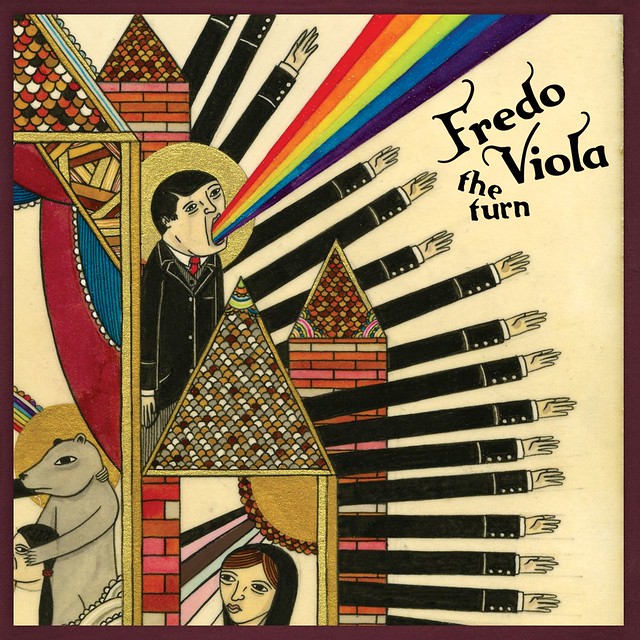When a musician can boast such a command of melody and a voice of such soaring intensity as Fredo Viola, you could be forgiven for anticipating a record that's all too eager to stake out its comfort zone and defend it to the death. Yet while most singer/songwriters who know how to craft a tune are content to do just that, tipping the hat here and there to the sacred conventions of Nilsson, McCartney, and Wilson,Viola uses that facility purely as a launching pad for some of the most audacious and thrilling vocal arrangements to be heard on a pop record for many a year. Viola says he initially multi-tracked his voice to fill in for all the instruments he couldn't play. Yet in doing so he has inadvertently evolved a technique that, while it evokes sources as diverse as tribal chants, doo wop, Ligeti, Gregorian chant, and the Beach Boys at their most psychedelic, ultimately leaves you with that rarest of feelings -- that you are in the presence of something truly original. The Turn certainly contains enough evidence that, should commercial realities ever begin to bite, Viola could easily make his way as a master tunesmith. Even such two-minute pop marvels as "The Original Man" and "Friendship Is" are nevertheless brimming with harmonic and rhythmic twists. Yet while the voice is Viola's weapon of choice, his instrumental arrangements -- mostly keyboard-based -- are full of immaculately tailored sonic adventure. Only the strummed acoustic guitars of "Red State," a somewhat timid choice for a single, share a border with the merely humdrum. At its peak, however, The Turn is genuinely breathtaking. The title track is a thing of sinuous beauty, while "Robinson Crusoe"'s evocation of childhood games is one of the most uplifting slices of pure pop melody cloaked in luscious textures since "Penny Lane." Best of all is "Death of a Son," a pocket symphony that evolves from a state of choral grace to an exuberant celebration crackling with handclaps and (literal) fireworks. All told, The Turn is a triumphant reminder of pop's golden age, not in any nostalgic sense but in the way it captures that magical moment before commercialism and innovation became mutually exclusive concepts. So often in these days of bedroom studios, you get the feeling that experimentation is nothing more than a handy smokescreen for the inability to write a coherent melody. Fredo Viola is confirmation, if it were needed, that there's a very real distinction to be made between pushing envelopes for the sake of it and letting the imagination soar.
aCá
Wednesday, June 26, 2013
Subscribe to:
Post Comments (Atom)



No comments:
Post a Comment